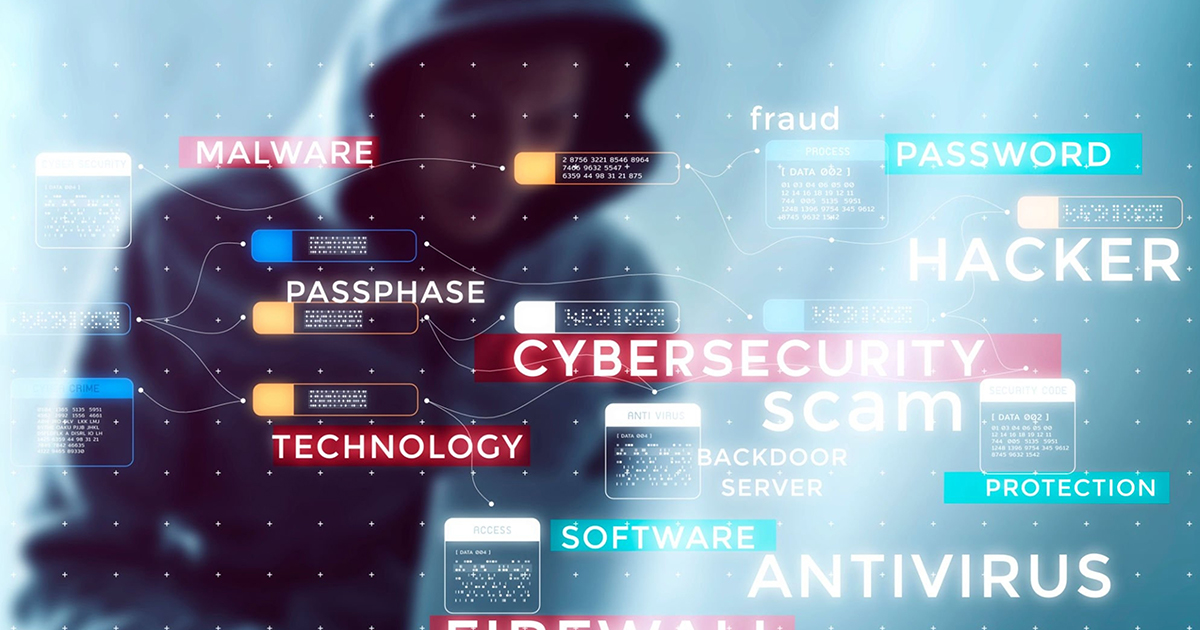The Rise of Social Media Marketing and Its Vulnerabilities
Have you ever considered the price of your social media presence? In the modern realm of digital marketing, a strong presence on social media platforms is indispensable for businesses aiming for success. However, this online endeavor is not without its cybersecurity threats. It’s pivotal to include robust cybersecurity measures to foster secure engagement with your audience.
The rise of social media marketing comes with many vulnerabilities that require careful attention. Harmful activities on social media have increased, providing a profitable opportunity for cybercriminals, with an annual global revenue of $3.25 billion. A recent study disclosed that 11% of social media users have deleted their accounts due to rising concerns over privacy and security breaches. This scenario proposes a crucial question for enterprises: how can they adeptly navigate social media marketing while safeguarding their reputation and clients’ sensitive information? In this article, we will delve into the importance of prioritizing cybersecurity in your social media marketing endeavors.
The Risks: What Happens When Your Social Media Account Gets Hacked?
The thought of having your social media account hacked can be nothing short of a digital nightmare. Let’s discuss various risks and consequences associated with a compromised social media account.
The Impact of a Social Media Hacking
Imagine one day you log into your business’s social media account, and you get to know that you’ve lost access. This is the harsh reality that many individuals and business organizations have faced. When a social media account gets hacked, several critical risks come into play.
- Damage to Reputation
Brand reputation is one of your most valuable assets for every business, and a hacker can damage it overnight. Cybercriminals may post misleading or offensive content under your brand’s name.
- Loss of Customer Trust
When customers share their personal details with businesses, they place significant trust in them. A breach in your social media account could signify a breach of that trust. This loss of trust could lead to lower engagement, a dip in customer retention and loyalty, and even financial losses.
- Financial Implications
Cyberattacks can result in financial losses, both in a direct and indirect manner. You may incur costs for investigating the data breach, informing the affected individuals, and setting up security measures to prevent future cyber attacks.
- Legal Consequences
Legal repercussions may follow depending on the nature of the breach and the data involved. Data protection laws and regulations, like the General Data Protection Regulation (GDPR), require organizations to secure customer data diligently. Failing to meet these requirements can result in fines and legal action.
- Operational Disruption
A hacked social media account can disrupt your day-to-day operations. It may take time to regain control, during which your marketing efforts could stall. The longer the breach goes unnoticed, the greater the potential damage.
- Spread of Malicious Content
Hackers often use compromised accounts to spread malware or phishing attacks. Unsuspecting followers may click on malicious links or download infected files, further propagating the cyber threat.
In the world of digital marketing, where your brand’s virtual presence is crucial, these risks are only the beginning of what marketers should know about cybersecurity. In the following sections, we’ll explore the importance of regular security checks and concrete steps to increase your social media security.
The Importance of Regular Security Checks
Now that we’ve explored the cybersecurity risks, it’s pivotal to underline that these aren’t mere hypothetical scenarios. They can quickly turn from a potential threat to a grim reality. Grasping these risks paves the way for us to dig deeper into the proactive steps you can embrace to shield your social media cybersecurity.
Why Regular Security Checks Matter
Regular security checks on your social media accounts mirror the routine health check-ups for your physical wellness. Here are some persuasive reasons why this habit should be a core component of your digital marketing game plan:
- Proactive Vulnerability Detection
The realm of social media threats is forever evolving, with new vulnerabilities emerging steadily. By embracing regular security checks, you can pinpoint potential weak spots in your corporate social media accounts and take the necessary steps before hackers get an opportunity to exploit them.
Implementing advanced security measures, such as the Meraki MX84 advanced security license and support, can further enhance your defenses against these evolving threats. This comprehensive solution is designed to protect sensitive data and maintain the integrity of your digital marketing efforts by providing robust safeguards against unauthorized access and cyber attacks.*
- Safeguarding Customer Data
If your social media accounts process customer data or sensitive details, regular security checks are vital to ensure such data stays secure. Customers entrust you with their information, and it squarely falls upon your shoulders to protect their customers’ data.
- Maintaining Brand Reputation
A compromised social media account can tarnish your brand’s reputation in a flash. It’s essential to take cybersecurity services, it can serve as a barrier against unauthorized access and posting malicious content under your brand’s banner.
- Compliance with Regulations
Based on your sector and location, there might be regulations and compliance mandates surrounding data security. Security protocols can aid in ensuring that you adhere to these regulations, steering clear of potential legal consequences.
- Immediate Response to Threats
When a breach occurs, early spotting is crucial. Information security checks allow you to recognize and react to threats, curtailing potential harm swiftly.
Steps for Effective Security Checks
Now that we’ve grasped the significance of regular security checks, let’s traverse through a step-by-step manual on executing them. Follow these directives to enhance the cybersecurity in digital marketing platform:
- Password Strength: Make sure you have strong passwords that are robust and distinct for every social media channel. Use letters, digits, and special symbols while entering credentials to make it difficult to access social media accounts.
- Two-Factor Authentication (2FA): Activate 2FA wherever feasible. It furnishes an additional cyber security layer by necessitating a second verification form.
- Monitor Account Activity: Consistently monitor your account’s activity logs for suspicious or unauthorized entries. In this way, you not only enhance your cybersecurity awareness but also stay vigilant against potential security threats.
- Software Updates: Maintain your gadgets and security software updated to shield against recognized vulnerabilities.
- Regular Scans: Execute regular scans for malware and viruses, such as a macbook virus scan, to identify and eradicate threats.
- Employee Training: Enlighten your team on cybersecurity best practices to minimize the risk of insider threats.
By adhering to these best practices, you can strengthen your social media accounts against security risks, assuring the sustained trust of your customers and safeguarding your brand’s integrity.
Case Studies: Brands That Suffered Due to Poor Cybersecurity
In the digital age, cybersecurity is not a luxury but a necessity, especially when it comes to social media marketing. After delving into the risks and the significance of regular security checks, it’s imperative to illustrate the real-world implications through some case studies. The following case studies underscore the importance of robust cybersecurity measures in safeguarding a brand’s reputation and customer trust.
MOVEit Hack (June 2023):
A security flaw in MOVEit’s software triggered a massive breach, affecting over 200 organizations and 17.5 million individuals. The breach was masterminded by the Russia-linked ransomware group Clop; the attackers threatened to release the stolen data on the dark web. This incident emphasizes the cybersecurity risks tied to software vulnerabilities and the necessity of timely patching to mitigate such threats.
T-Mobile Data Breach (May 2023):
T-Mobile suffered its ninth data breach since 2018, exposing the personal information of over 800 customers. Earlier in January 2023, another breach had occurred, affecting over 37 million customers. The financial losses and damage to brand reputation underscore the cybersecurity threats that can derail marketing efforts and erode customer trust.
Yum! Brands Cyber Attack (April 2023):
A cyber attack on Yum! Brands, the parent company of KFC, Taco Bell, and Pizza Hut, led to the closure of nearly 300 locations in the UK. Although initially believed to affect only corporate data, the breach later revealed the potential exposure of employee personal data. This incident emphasizes the cyber risk associated with inadequate security measures and the potential impact on business operations.
Conclusion
In the dynamic domain of digital marketing, the stature of your social media presence is akin to a valuable asset. However, it can be targeted by cybercriminals aiming to exploit any vulnerabilities for financial leverage or damage your brand’s reputation. As we navigated through this guide, the reality of risks tied to social media account hacks is both real and extensive.
Our journey commenced with the acknowledgment that in this digital era, safeguarding your social media accounts is a pivotal step for securing your business. We delved into the essence of robust cybersecurity measures, offering pragmatic steps to fortify your personal social media accounts. These steps encompass the creation of strong passwords, employing two-factor authentication, and conducting regular scans.
The blog further unfolded the real-world consequences of a compromised account, shedding light on potential damage to reputation, operational disruptions, and the propagation of malicious content. The narrative underscores the importance of safeguarding your brand’s integrity, maintaining customer trust, and ensuring the enduring success of your marketing endeavors.
Raghav is a talented content writer with a passion to create informative and interesting articles. With a degree in English Literature, Raghav possesses an inquisitive mind and a thirst for learning. Raghav is a fact enthusiast who loves to unearth fascinating facts from a wide range of subjects. He firmly believes that learning is a lifelong journey and he is constantly seeking opportunities to increase his knowledge and discover new facts. So make sure to check out Raghav’s work for a wonderful reading.




